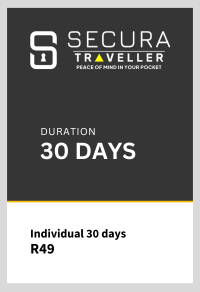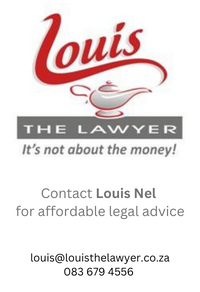louis-THE-lawyer's series on COPYRIGHT - #3 COPYRIGHT: INFRINGEMENTS AND REMEDIES
#3 COPYRIGHT: INFRINGEMENTS AND REMEDIES
Protection
The primary protection for copyright holders comes from the Copyright Act, Act 78 of 1978 (as amended) (the "Act"). This protection extends to foreign works as South Africa is a signatory to the Berne Convention, the World Trade Organisation (WTO) Agreement, and the Agreement on Trade-Related Aspects of Intellectual Property Rights (TRIPS). This means South Africa must afford works from countries listed in the schedules to these agreements the same protection it affords South African works.
What Constitutes Infringement?
Infringement can be direct or indirect. Direct infringement occurs when someone, without the owner's consent, does something only the owner can do. This exploitation differs for each copyright category (see your 1st insert) and includes copying, reproducing, adapting, performing, etc., and can apply to the entire work or a substantial part of it.
Indirect infringement includes actions like selling, letting, offering for sale, and distributing infringing copies.
When Does an Action Not Constitute Infringement?
Fair Use: Section 12 of the Act allows fair use of a copyrighted work for the following purposes:
- Private or domestic use, including research or study
- Criticism or review
- News reporting
- The following factors are considered when assessing fair use:
- The purpose and character of the use, including whether it's commercial or non-profit educational
- The nature of the copyrighted work
- The amount and substantiality of the portion used relative to the whole work
- The effect of the use on the potential market for, or value of, the copyrighted work
Licensing: Actions by a third party can be legitimized by the owner granting a license.
Finally, it's possible that a substantially similar work independently created is not an infringement.
Statutory Fines
The Copyright Act also sets out criminal penalties for infringement. A first conviction can result in a maximum fine of R5,000 per infringement and/or imprisonment for up to 3 years. The maximum penalty for a second conviction is R10,000 and/or 5 years' imprisonment.
Remedies Available to Copyright Holders
- Injunction: An injunction can be sought to prevent someone from doing something or require them to do something specific. It can be interim (temporary) or final.
- Damages: Damages can be claimed, but not if the infringement was innocent (i.e., the defendant was unaware of the copyright or the plaintiff had no reasonable grounds to believe the defendant knew their actions infringed). This highlights the importance of a proper copyright notice (see your 2nd insert).
- Additional Damages: Punitive or aggravated damages may be awarded in certain circumstances, such as flagrant infringement.
- Account of Profits: This is an alternative remedy to damages. The copyright holder can recover a portion of the defendant's profits attributable to the infringement.
Plagiarism
Plagiarism is the unethical use of information without attribution. It can result in expulsion from educational institutions and damage a student's career.
Distinguishing Between Plagiarism and Copyright Infringement
These concepts can differ and overlap:
Plagiarism but not Copyright Infringement: A student uses a short excerpt from a publication without citing the author. This might be plagiarism (presenting someone else's work as their own), but not copyright infringement if the amount copied is minor and unlikely to harm the author commercially.
Copyright Infringement but not Plagiarism: A student uses a substantial excerpt and acknowledges the author, but the amount copied is so significant that permission was required.
Both Plagiarism and Copyright Infringement: A student copies work verbatim and presents it as their own, without any acknowledgment or permission from the author.
Further Information
The next insert will discuss transfer and licensing.
Acknowledgement
Aspects of the above are acknowledged from the following source(s):
Aspects of the above is with acknowledgement of the following:
https://copyrightalliance.org/education/copyright-law-explained/copyright-owners-rights/copyright-exclusive-rights/https://wikijuris.net/ausip/copyrightremedies/https://libguides.unisa.ac.za/research-support/plagiarism#:text D M Kisch/Kish IPhttps://irsc.libguides.com/copyright/fairuse; https://copyrightalliance.org/differences-copyright-infringement-plagiarism/
© ADV LOUIS NEL
LOUIS-THE-LAWYER
MAY 25 2024
DISCLAIMER - Each case depends on its own facts & merits - the above does not constitute advice - independent advice should be obtained in all instances
LOUIS’ LEGAL ADVICE CLUB (‘LAC’) – obtaining legal advice & guidance can be quite costly (See below*) hence my LAC via which you can obtain an hour’s legal advice for R750, 00 per month once you’ve joined AND the fee for additional hours is R1850 per hour!
Furthermore you are dealing with a lawyer who has been in tourism since 1982!
* The AVERAGE hourly rate is R2700 - https://www.myggsa.co.za/how-much-do-lawyers-charge-per-hour-in-south-africa/























